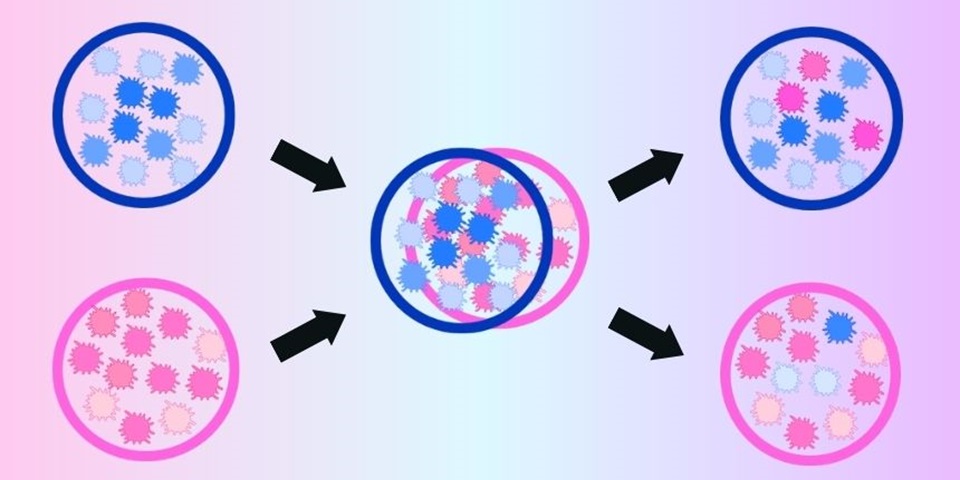News
‘Sexome’ bacteria could help identify sex criminals

Murdoch University forensic science PhD candidate Ruby Dixon has made a discovery that could lead to a new weapon in the arsenal against perpetrators of sexual assault.
In her first publication in the high-ranking journal Forensic Science International, Ms Dixon demonstrated that bacteria can be transferred between a male and female during sexual intercourse and there is a possibility that bacterial colonies may be unique to each individual.
The research was the brainchild of Brendan Chapman, a Senior Lecturer in Forensic Science at Murdoch who has spent more than a decade working with law enforcement at crime scenes and in the laboratory.
The pair have coined the bacterial DNA makeup of the sex organs, the ‘sexome’.
Identifying the perpetrator of a sexual assault is complex and often requires the analysis of human DNA to catch the offender.
But traces of DNA are not always found, such as when semen is not present, making the task all the more difficult for investigators.
“Current techniques for investigating sexual assault work well, however if there aren’t enough male cells then there may not be enough to link it to a person using conventional DNA analysis,” Ms Dixon said.
“This research shows that we can detect that a heterosexual couple has had intercourse based on the bacteria we find after sex.
“Some ‘male bacteria’ stays on the female and some ‘female bacteria’ stays on the male.
“The end goal is that we’ll be able to take a swab, analyse the bacteria, and link it back to an individual, or at the very least eliminate suspects.”
Ms Dixon explained that even if the bacteria wasn’t completely unique to an individual, it would likely be distinct enough to eliminate assault suspects.
“It’s like when you buy a packet of M&M’s, you know that there are six colours in every packet, so you might say they’re identical from the outside,” she said.
“However, each packet has a different number of each colour - one might have five blue, while another only three - and it goes the same for each colour.
“It’s similar when it comes to bacteria, although male bacteria may look relatively similar at a glance, we found the composition of each person’s bacterial makeup is probably different enough to use for identification.”
Mr Chapman said the findings could have a significant real-world impact on investigations.
“This research is a big step forward for forensic science and has the potential to lead to breakthroughs in cases that involve sexual assault,” he said.
“We've demonstrated the concept, and the plan is to further investigate uniqueness of individual bacterial fingerprints and the effect of things like contraception and non-heterosexual couples.
“The fact is, we have now demonstrated that bacteria may be just as powerful as conventional forensic DNA but with the added benefit of being available even when male human DNA is undetectable.”
Ms Dixon said the next stage of the research will further assess how the new technique can be implemented on a national scale.
DISCLAIMER: It is important to note that sexual assault occurs irrespective of biological sex and gender identity. As a baseline for this research, we must first understand how microbial transfer occurs in heterosexual partners. This information can further inform future research that includes non-heterosexual persons.
If you or someone you know has experienced sexual assault, here are a list of support services:
- Sexual Assault Resource Centre (08 6458 1828): A free service located in Perth providing crisis services to people who have experienced a recent sexual assault (rape) in the last two weeks and counselling for sexual assault / abuse experienced recently or in the past. Services are available for people of all sexualities and gender identities aged 13 years and above.
- Report to the Police (if you choose to): Call the Sex Assault Squad on (08) 9428 1600 or call a local Police station on 131 444. Contact SARC if you require any support or are unsure about going to the police
- Lifeline (131114): 24/7 support. Short-term support for people who are feeling overwhelmed or having difficulty coping or staying safe.
For more information about the study, email sexomeproject@murdoch.edu.au.
Put your curiosity to work and investigate crime from a scientific viewpoint. Focusing on biology and life sciences, and forensic science including DNA analysis and toxicology, Murdoch's Forensic Biology and Toxicology major is the only course of its kind in WA.